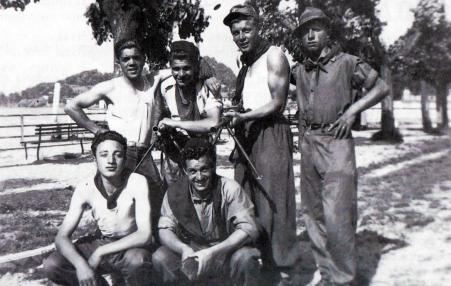The Writers Who Went Undercover To Show America Its Ugly Side
The Atlantic
 Can it be enough to denounce the evils of the past? I believe it’s not enough if we fail to rise up in protest against the fact that democracy -- in the name of which so many young partisans went to fight, has become marked by inequality and arrogance of the powers-that-be – is unable to make obvious the reasons why it was the bitter enemy of Fascism.
Can it be enough to denounce the evils of the past? I believe it’s not enough if we fail to rise up in protest against the fact that democracy -- in the name of which so many young partisans went to fight, has become marked by inequality and arrogance of the powers-that-be – is unable to make obvious the reasons why it was the bitter enemy of Fascism.
Spread the word